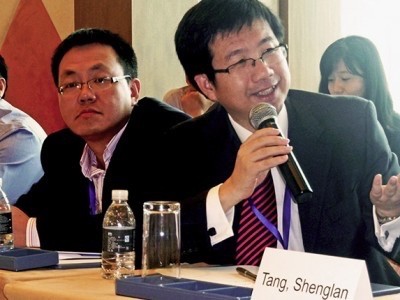Dr. Tang Shenglan, Duke University Professor of Medicine and Global Health and Founding Director of the Global Health Research Center of Duke Kunshan University in China, recently wrote a Paulson Policy Memorandum, “Developing More Equitable and Efficient Health Care in China.” Here, Dr. Tang calls for reforms to balance China’s health care inequities.

 In the late 1980s and 1990s, China’s health care system was collapsing, as the state sector gave up responsibility for health benefits. Much progress has been made, and yet there are still huge problems. Can you give us a snapshot?
In the late 1980s and 1990s, China’s health care system was collapsing, as the state sector gave up responsibility for health benefits. Much progress has been made, and yet there are still huge problems. Can you give us a snapshot?
China has made huge progress in terms of expanding health insurance coverage to its population over the past decade. It has almost achieved universal coverage. However, service benefit packages offered by three main health insurance schemes and among different provinces and cities vary a great deal. The financial protection offered to rural farmers in the central and western part of China is limited. Therefore, equity in financing of, and access to, healthcare need improvement. In addition, the management of these health insurance schemes is fragmented, resulting in poor efficiency.
 Why is reform of the household registration (hukou) system important for health care?
Why is reform of the household registration (hukou) system important for health care?
Enrollments for rural health insurance schemes, and ones for urban basic health schemes are based on where people’s official household registration is. However, the number of rural-to-urban migrants has risen to over 250 million in China. Those people enrolled their health insurance in their home towns/counties, but they are living and working in faraway cities. Their health insurance schemes are not portable, which makes it difficult for them to access health care.
 People living in Beijing get much better health care and coverage than than people in a village in Guizhou. How can China fix this?
People living in Beijing get much better health care and coverage than than people in a village in Guizhou. How can China fix this?
Both the central government and local governments should increase health investment, targeted to poor areas and vulnerable groups. In addition, the governments should provide adequate incentives to encourage qualified doctors and other health professionals to work in the poor areas like Guizhou. This is a challenge faced by many developing countries. There is no quick and easy solution to fix such a problem!




